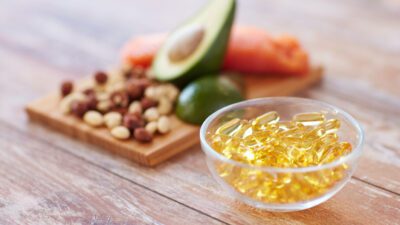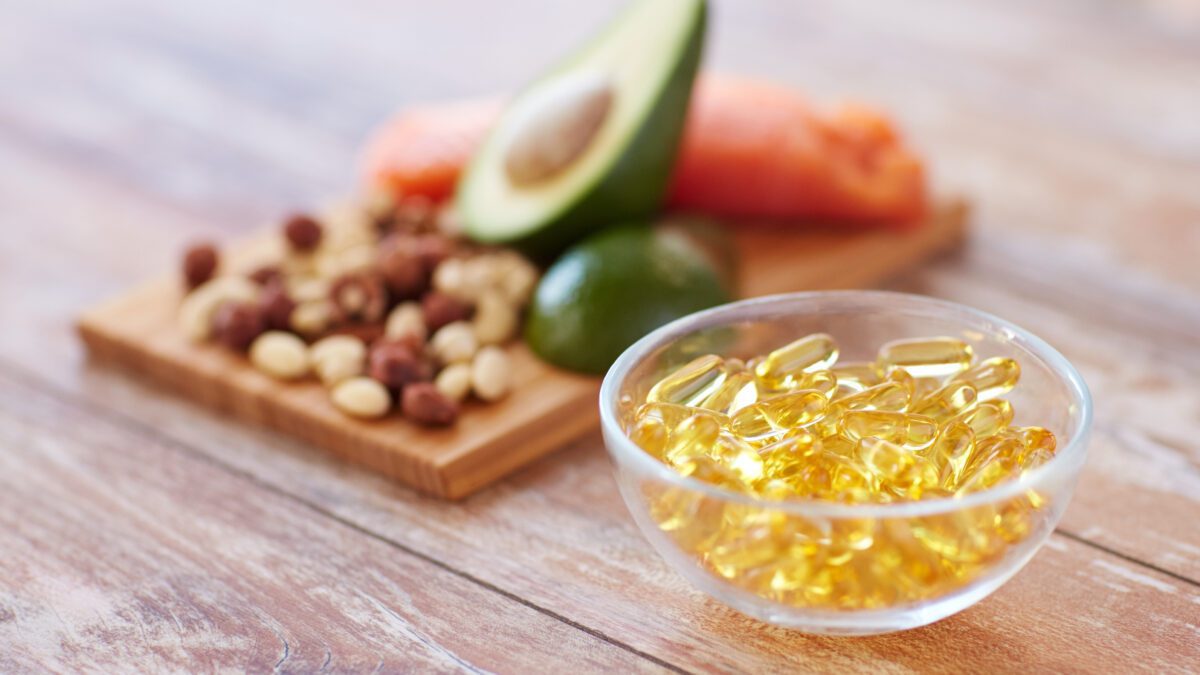



Pregnancy is a critical time for both mother and the baby and following a healthy diet reflects on the health and development of the child. During pregnancy, women require more nutrients, vitamins and minerals (1). In fact, in the second and third trimester of pregnancy, the body requires up to five hundred more calories during the day (2). Poor eating habits and excessive weight gain can increase the mother’s risk of developing gestational diabetes and complications of pregnancy and birth (3).
The ideal diet for an expectant mother should be providing her with ample amounts of protein, carbohydrates, healthy fats, minerals and vitamins.
This vitamin plays an important role in the synthesis of DNA, the production of red blood cell and the growth and development of the foetus (4). Folic acid is a synthetic form of folate which is often seen in supplements, once consumed the body converts it into the active form of folate, L-methylfolate. Experts recommend that pregnant women should be consuming roughly 600ug of folate or folic acid on a daily basis to reduce any risks of neural tube defects and congenital abnormalities including cleft palate and heart defects (5). A review of five studies which had over six thousand pregnant participants, found that daily supplementing with folic acid was associated with a reduced risk of neural tube defects and no negative side effects occurred (6).
Although it is possible to consume enough folate through diet alone, many women still are not eating enough folate-rich foods which makes supplementation a necessity (7).
Foods with a good source of Vitamin B9: Asparagus,Leafy Greens, Broccoli and Brussels Sprouts
This vitamin is fat soluble and is understood to be important in immune function, bone health and in cell division. Studies have found that deficiencies in vitamin D are linked with an increased risk of emergency caesarean sections, preeclampsia, premature births and the development of gestational diabetes (8). Currently, it is recommended that pregnant women consume 600 iu of vitamin D daily, however this is disputed by other experts who suggest that vitamin D intake should be higher (9).
Foods with a good source of Vitamin D: Vitamin D can occur naturally from sunlight exposure, but you can also get Vitamin D from fortified foods including yoghurts, milk and certain cheeses.
A recent review carried out in 2015 found that routine supplementation of vitamin C during pregnancy was associated with a thirty-six percent reduction in cases of placental abruption in along with a significant reduction in cases of pre-labour rupture of membranes (PROM) (10).
Foods with a good source of Vitamin C: Red, Peppers, Oranges, Kiwi and Acerola Cherries.
Vitamin B6 is known to be important for several metabolic processes within the body, which include the development and functioning of the nervous system. It was previously suggested that consuming vitamin B6 on a regular basis played a role in the prevention of pre-eclampsia and even preterm birth, however, more recent reviews on the has found that there is insufficient evidence to claim any benefits or harm. Instead, routine vitamin B6 supplementation has been shown to provide relief from pregnancy-related symptoms of morning sickness (13).
Foods with a good source of Vitamin B6: Avocado, spinach and a medium russet baked potato.
For more information on the top vitamins for pregnancy, see our Pre and Post-Natal Nutrition Course.
[Sources]
1. Butte, N.F., Wong, W.W., Treuth, M.S., Ellis, K.J. and O’Brian Smith, E., 2004. Energy requirements during pregnancy are based on total energy expenditure and energy deposition. The American journal of clinical nutrition, 79(6), pp.1078-1087.
2. Pinto, E., Barros, H. and dos Santos Silva, I., 2009. Dietary intake and nutritional adequacy prior to conception and during pregnancy: a follow-up study in the north of Portugal. Public health nutrition, 12(7), pp.922-931.
3. Hedderson, M.M., Gunderson, E.P. and Ferrara, A., 2010. Gestational weight gain and risk of gestational diabetes mellitus. Obstetrics and gynaecology, 115(3), p.597.
4. Molloy, A.M., Kirke, P.N., Brody, L.C., Scott, J.M. and Mills, J.L., 2008. Effects of folate and vitamin B12 deficiencies during pregnancy on fetal, infant, and child development. Food and nutrition bulletin, 29(2_suppl1), pp.S101-S111.
5. https://ods.od.nih.gov/Health_Information/Dietary_…
6. De-Regil, L.M., Fernández-Gaxiola, A.C., Dowswell, T. and Peña-Rosas, J.P., 2010. Effects and safety of periconceptional folate supplementation for preventing birth defects. The Cochrane database of systematic reviews, (10), p.CD007950.
7. Centers for Disease Control and Prevention (CDC, 2005. Use of dietary supplements containing folic acid among women of childbearing age–United States, 2005. MMWR. Morbidity and mortality weekly report, 54(38), p.955.
8. Moy, R., Shaw, N. and Mather, I., 2004. Vitamin D supplementation in pregnancy. The Lancet, 363(9408), p.574.
9. Hollis, B.W. and Wagner, C.L., 2006. Nutritional vitamin D status during pregnancy: reasons for concern. Canadian Medical Association Journal, 174(9), pp.1287-1290.
10. Rumbold, A. and Crowther, C.A., 2005. Vitamin C supplementation in pregnancy.
11. Van Den Broek, N., Dou, L., Othman, M., Neilson, J.P., Gülmezoglu, A.M. and Gates, S., 2010. Vitamin A supplementation during pregnancy for maternal and newborn outcomes. Cochrane Database of Systematic Reviews, (11), p.CD00866.
12. Oliveira, J.M.D. and Rondó, P.H.D.C., 2007. Evidence of the impact of vitamin A supplementation on maternal and child health. Cadernos de saude publica, 23(11), pp.2565-2575.
13. Salam, R.A., Zuberi, N.F. and Bhutta, Z.A., 2015. Pyridoxine (vitamin B6) supplementation during pregnancy or labour for maternal and neonatal outcomes.